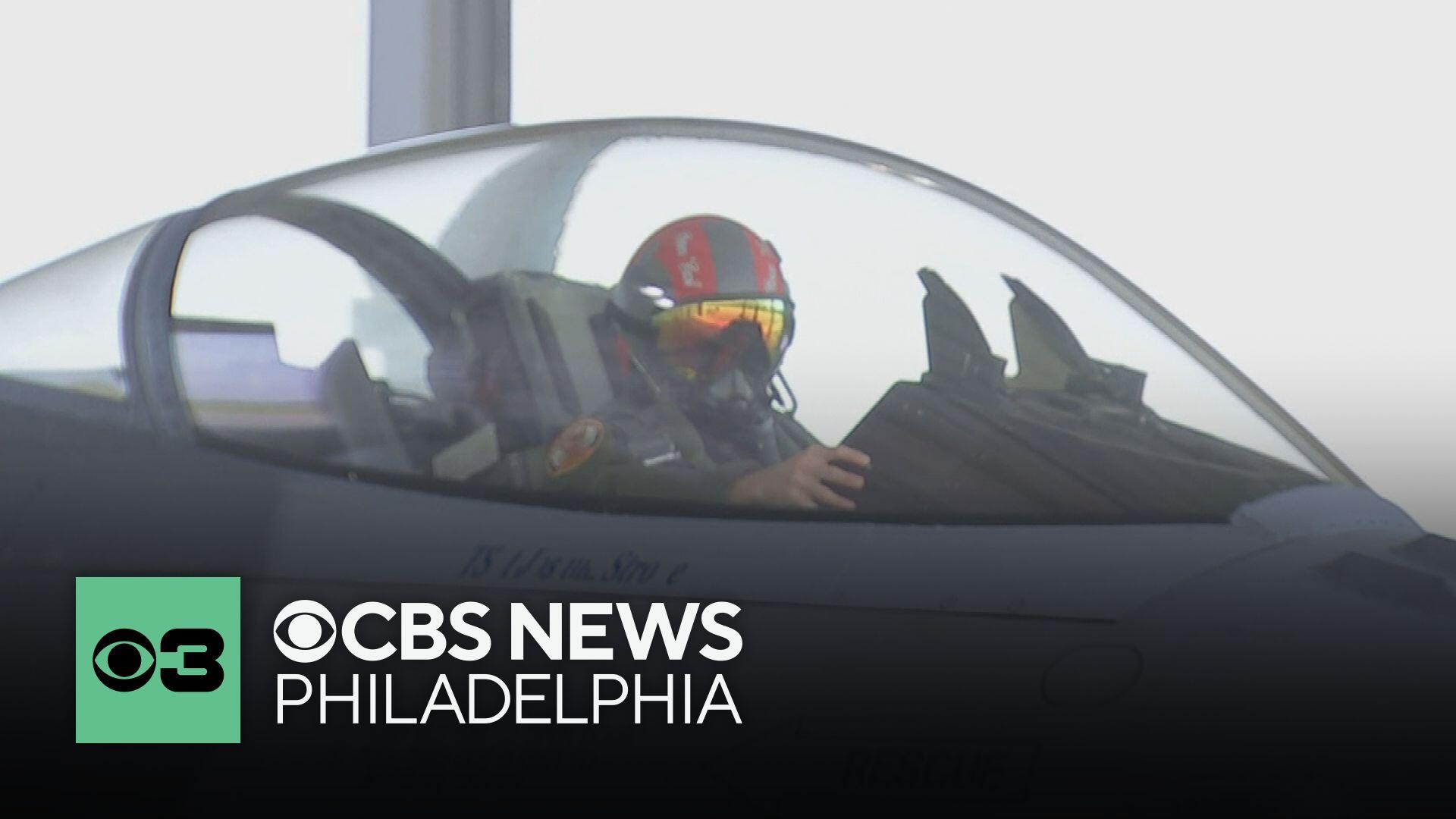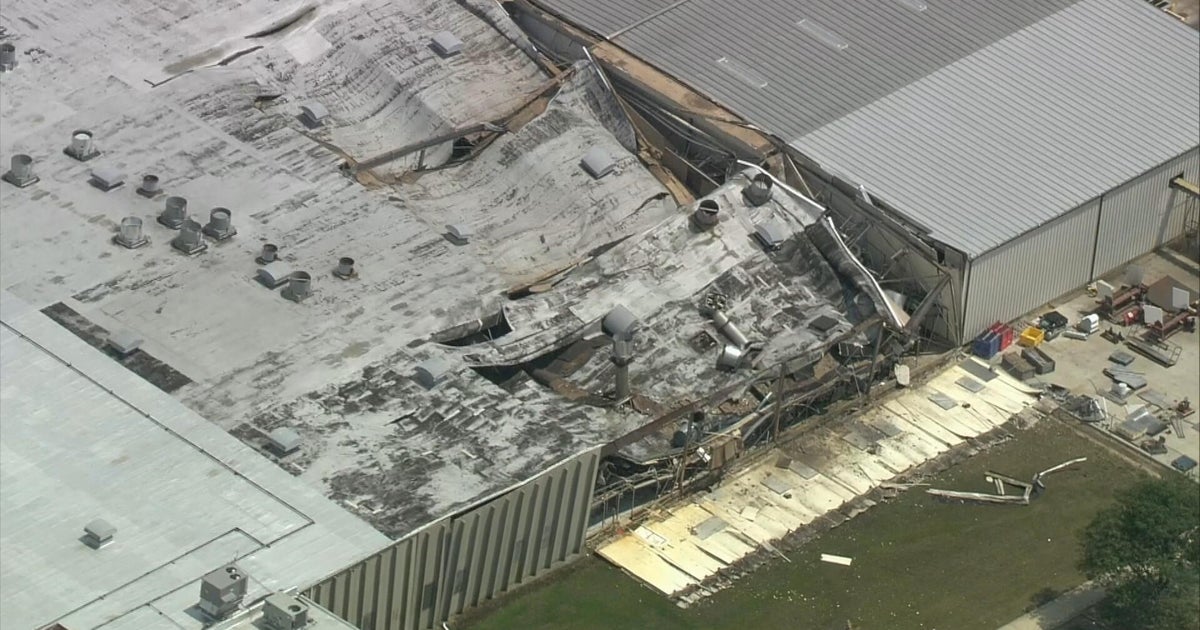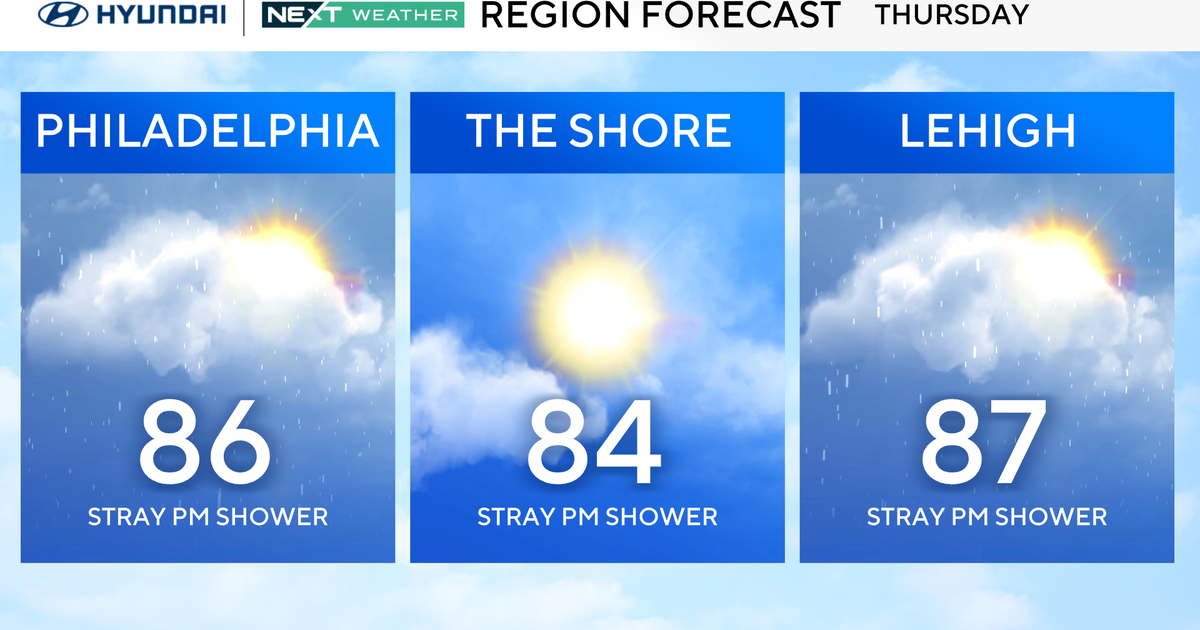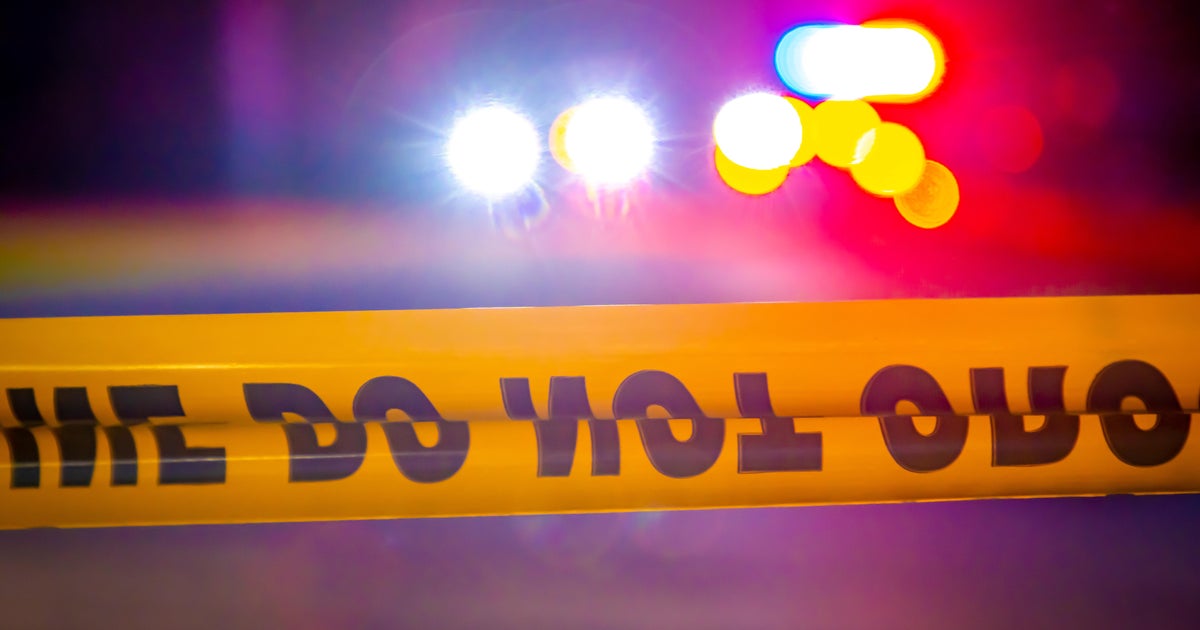Inside look at how New Jersey Air National Guard pilots defend restricted airspace as violations spike
Sirens blare at the New Jersey Air National Guard 177th Fighter Wing base in Atlantic City. The pilots suit up, sprint to their jets and in minutes are off the ground.
"One minute you're sitting in a chair watching TV. The next minute, you're in the sky flying," said Lt. Col. Tom Still, the alert force commander for the 177th Fighter Wing.
This is what officials say it looks like when these pilots get a call from NORAD to contact planes that have violated restricted airspace. On Thursday, CBS News Philadelphia got an inside look at the response as federal numbers show a rise in violations, particularly in one nearby area.
These Temporary Flight Restrictions, known as TFRs, are put in place by the FAA and enforced by NORAD in areas where high-profile world leaders may be. Leaders in Atlantic City are putting out the word to local pilots: Expect to see them in our area over the summer.
"The TFRs haven't been around all year. They're starting to get activated a lot more up North," Still said.
That "North" that Still is referring to is Bedminster, New Jersey, home to one of President Trump's golf clubs and a spot he often frequents during the summer months. Federal officials say they've seen a spike in violations of the TFRs in just the last week.
According to a NORAD spokesperson, the agency has responded to 12 TFR violations in the Bedminster area since Mr. Trump assumed office on Jan. 20. Eight of those have happened within the last week. On June 20, NORAD reported five violations, with another three coming the next day, including one that needed to be intercepted by a fighter jet.
Still says, in his experience, almost all violators don't know they're in a TFR when they're contacted.
"They're surprised. They don't understand why there's an armed military aircraft next to them," Still said. "We're always assuming the best, but prepared for the worst."
Leaders say they go through a process of trying to make contact with violators.
That starts with a radio call, according to officials. If that doesn't work, fighter jets can pull up beside violators and rock their wings back and forth to try and signal them. After that, things can get more drastic.
"We do a move called a headbutt where we fly across their nose, popping out flares to get their attention," Still said.
Officials say the message is before you take off this summer, make sure you know where you can and can't fly, as federal penalties can be stiff. According to the FAA, violators face anything from a warning to a fine, and even have their flight certificates revoked.
According to Still, Atlantic City is one of several bases along the East Coast that NORAD can call upon to help enforce TFRs. Generally, he says, they can be called to help anywhere from Massachusetts to Washington, D.C., and can be over major cities like Philadelphia and New York in a matter of minutes.
Still says pilots at the base can also be called in to help commercial airlines with reports of unruly passengers, and these pilots serve as a first line of defense over our skies.
"We're trained to protect America against multiple threats," Still said.




